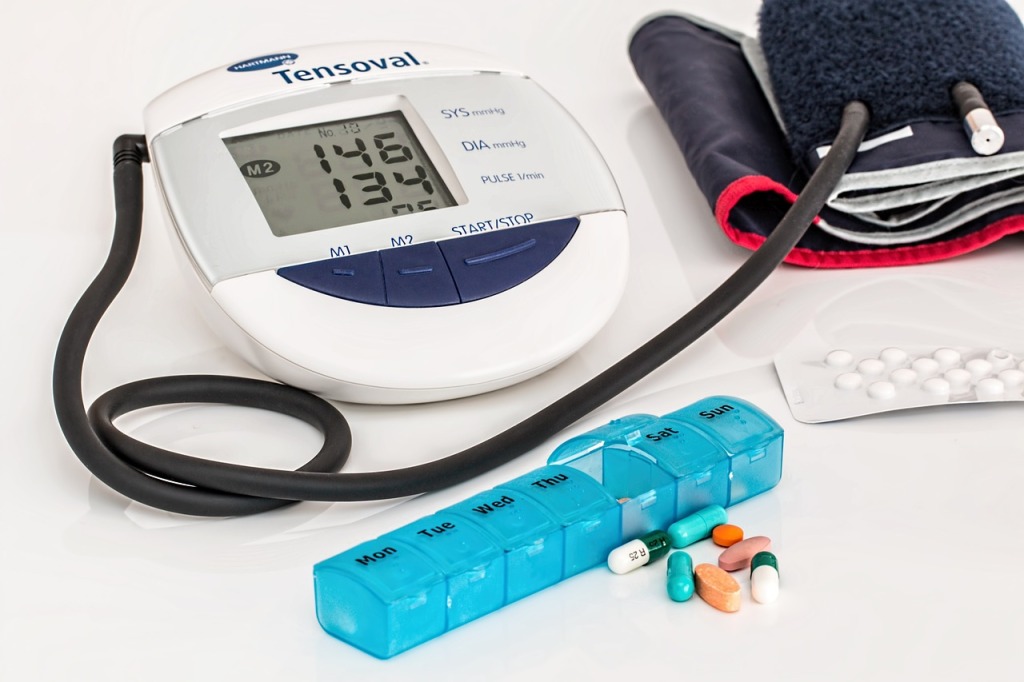World Hypertension Day is an annual event observed on May 17th to raise awareness about hypertension, its impact on individuals and communities, and the importance of prevention and control. In this blog post, we will delve into the history of World Hypertension Day, explore what hypertension is, discuss its symptoms, prevalence, and associated diseases. We will also highlight the causes of hypertension, ways to prevent it, and lifestyle changes that can help manage this condition effectively.

1. History of World Hypertension Day
World Hypertension Day was first inaugurated in May 2005 by the World Hypertension League (WHL) in an effort to promote public awareness and education about hypertension. Since then, it has become an annual observance, providing a platform to address the global burden of hypertension and its consequences.
2. What is Hypertension?
Hypertension, commonly known as high blood pressure, is a chronic medical condition characterized by persistently elevated blood pressure levels. Blood pressure is the force exerted by blood against the walls of the arteries as the heart pumps it around the body. When this pressure is consistently too high, it can lead to severe health complications.
3. Symptoms of Hypertension
Hypertension is often referred to as a “silent killer” as it usually does not exhibit noticeable symptoms in its early stages. However, some individuals may experience symptoms such as headaches, dizziness, shortness of breath, chest pain, or visual changes when their blood pressure rises to extremely high levels.
4. Is Hypertension Age-Specific?
While hypertension can affect people of all ages, it is more commonly observed in adults. The risk of developing hypertension increases with age due to factors like reduced elasticity of blood vessels and the cumulative effect of lifestyle choices over time. However, it is essential to note that hypertension can also affect children and adolescents, primarily due to genetic factors or underlying medical conditions.
5. Global Impact of Hypertension
Hypertension is a significant global health concern. According to the World Health Organization (WHO), it is estimated that around 10 million deaths occur every year worldwide due to hypertension-related complications such as heart disease, stroke, and kidney failure. These alarming statistics emphasize the urgent need for prevention, early detection, and effective management of hypertension.
6. Diseases Associated with Hypertension
Hypertension can lead to severe health conditions, including cardiovascular diseases (heart disease and stroke), kidney disease, eye problems, and damage to blood vessels. It is a major risk factor for coronary artery disease, heart failure, and various other chronic conditions. Proper management of hypertension is crucial to reduce the risk of developing these associated diseases.

7. Hypertension in Pakistan
In Pakistan, the prevalence of hypertension is a growing concern. According to the Pakistan Hypertension League, around 33% of adults in the country are estimated to suffer from hypertension. This high prevalence underscores the importance of raising awareness and promoting early detection and management of hypertension in Pakistan.
8. Major Causes of Hypertension
Several factors contribute to the development of hypertension, including genetic predisposition, unhealthy lifestyle choices, obesity, excessive salt intake, lack of physical activity, smoking, stress, and certain medical conditions. Understanding these causes can help individuals make informed choices to prevent or manage hypertension effectively.
9. Lifestyle Changes to Treat Hypertension
While medical intervention is often necessary to manage hypertension, lifestyle modifications can complement treatment and help control blood pressure levels effectively. Here are some essential lifestyle changes that can aid in the treatment of hypertension:
a. Dietary Modifications: Adopting a heart-healthy diet is crucial in managing hypertension. Include plenty of fruits, vegetables, whole grains, lean proteins, and low-fat dairy products in your meals. Limit the intake of saturated fats, trans fats, cholesterol, and sodium.
b. Reducing Salt Intake: Excessive sodium intake contributes to high blood pressure. Be mindful of the sodium content in processed and packaged foods. Opt for fresh, homemade meals with reduced salt. Use herbs, spices, and other flavorings as alternatives.
c. Regular Physical Activity: Engage in regular exercises such as brisk walking, jogging, cycling, or swimming. Aim for at least 150 minutes of moderate-intensity exercise or 75 minutes of vigorous exercise per week. Physical activity helps lower blood pressure, improves cardiovascular health, and aids in weight management.
d. Weight Management: Achieving and maintaining a healthy weight is crucial in managing hypertension. If overweight, strive to lose weight through a combination of a balanced diet and regular physical activity. Even a modest weight loss can have a significant impact on blood pressure levels.
e. Quit Smoking: Smoking not only raises blood pressure but also damages blood vessels and increases the risk of heart disease. Seek support and resources to quit smoking and adopt a smoke-free lifestyle.
g. Stress Management: Chronic stress can contribute to hypertension. Incorporate stress-reducing techniques such as deep breathing exercises, meditation, yoga, or engaging in hobbies and activities that bring joy and relaxation.
h. Regular Blood Pressure Monitoring: Keep track of your blood pressure regularly. Monitor it at home with a reliable blood pressure monitor, and maintain a record to share with your healthcare provider. This helps in identifying any changes or fluctuations and adjusting treatment accordingly.
Remember, lifestyle changes are an integral part of long-term management and prevention of hypertension. By implementing these lifestyle modifications, individuals can take an active role in managing their hypertension, improving overall cardiovascular health, and reducing the risk of complications associated with high blood pressure.
Let us prioritize our health and strive for a world where hypertension is effectively controlled, ensuring healthier lives for individuals and communities worldwide.

Leave a comment